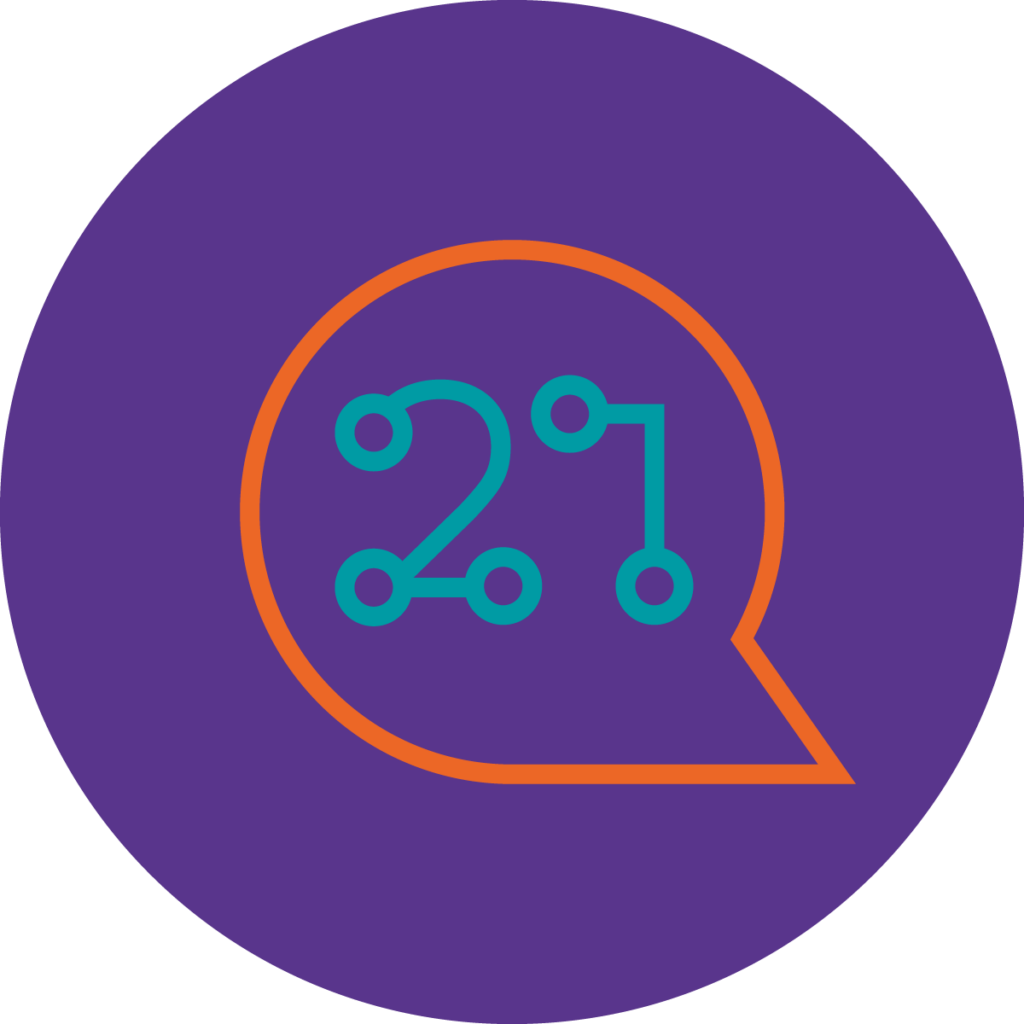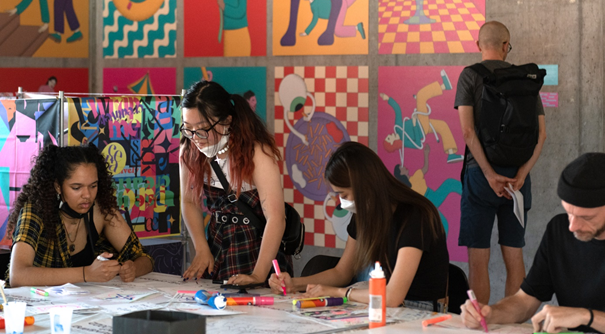At a glance
For: prospective students, students, teachers, university policy
Topics: Counteracting racist discrimination, promoting hybrid teaching-learning settings, barrier-free teaching/learning materials, making studies more flexible, study advice/support, practical and career field orientation, diversity-reflected teaching and support
Location: Goethe University Frankfurt
All-round support through your studies
Can I graduate even though I am the first in my family to go to college?
Can my working hours at work be combined with my lectures? Will it be possible to gain experience abroad despite my care responsibilities? Students at Goethe University are not left alone with questions like these: In the university-wide ELVIS project with its 16 sub-projects, appropriate offers are created together with the departments to comprehensively support students in a wide variety of life situations and study phases. ELLVIS stands for: Successful teaching and learning – diversity and international studies.
Sub-projects at a glance

- Counteract racist discrimination & reflect diversity in teaching
- Promotion of hybrid teaching-learning settings & accessibility (e.g. WoMepS , self-learning material SK and SZ )
- Practical phases in teaching
- Study success through advice and support
- Practical and professional field orientation ( GROW@Goethe )
- Diversity reflects teaching and supervision
- Qualification and support for teachers (e.g. time for teaching , kick-off workshops / teaching profiles , e-learning )
- Tutor / mentor qualification
- Extracurricular offerings to strengthen student success (e.g. Main teacher training , info café , PRO-L , basic digital skills , key skills , advice café , writing center , math center , method advice , physics center )
- “Study success in dialogue”
- Internationalization in teaching
- Facilitate the arrival of international students
- Support academic writing in English

Optimally prepared
Even before the start of the semester, Goethe University offers preparatory orientation and introductory events as well as preliminary or bridging courses. Here, students can not only prepare for content and compare their level of knowledge, but also get to know fellow students and network successfully.
Dealing with diversity
The students are as diverse as society and should experience studying as an open and safe place for learning and meeting. This is the only way they can fully develop in their subject. At Goethe University, great importance is therefore placed on teaching and learning settings that reflect diversity and are designed to be barrier-free. The teaching and study culture is geared towards dialogue, anti-discrimination and inclusion.
Stay oriented
Numerous advisory and workshop offerings are available to students during their studies. Topics include self-organization, mental health, learning strategies, academic writing, working on exercise sheets, preparing for exams, empirical research methods and much more. The sub-project “Study Success in Dialogue” also provides very individual course advice that takes into account your personal course of study.

In order to spread the diversity of ELLVIS topics across the entire university, university didactic qualifications and support for our teachers are crucial.

Good study conditions
The advisory and self-study offers are flexible and based on the realities of the students' lives. Whether quickly or at a slower pace, at off-peak times or in self-study – hybrid teaching-learning settings help to organize your studies precisely. If a semester abroad is not possible even with support, virtual experiences abroad are possible - internationalization is a natural part of the course anyway.
In the higher semesters, practical and professional field orientation become important. Service learning and work-integrated learning combine research-based learning and career orientation so that students can make the transition from university to their professional career while studying.
Qualification of teachers
In order to spread the diversity of ELLVIS topics across the entire university, university didactic qualifications and support for our teachers are crucial. Innovations in particular are developed from this perspective and teachers are supported in their implementation. The students are also involved, for example in tutor and mentor qualification. Peer learning promotes the joint acquisition of skills by students, tutors and teachers.
Contact person in
Anna Bitzer , Goethe University Frankfurt




